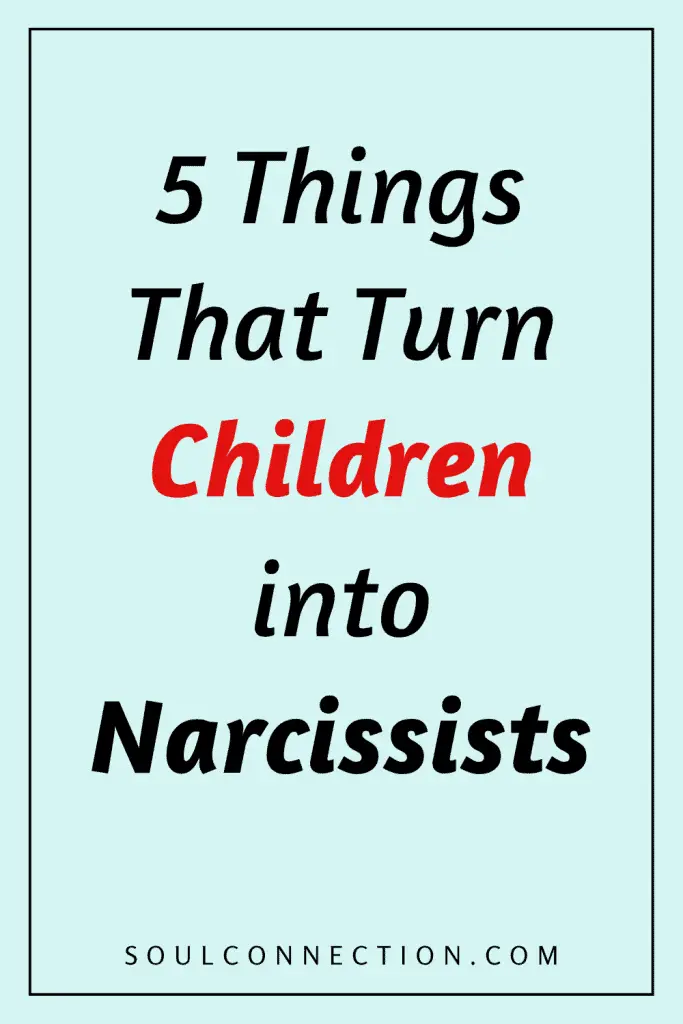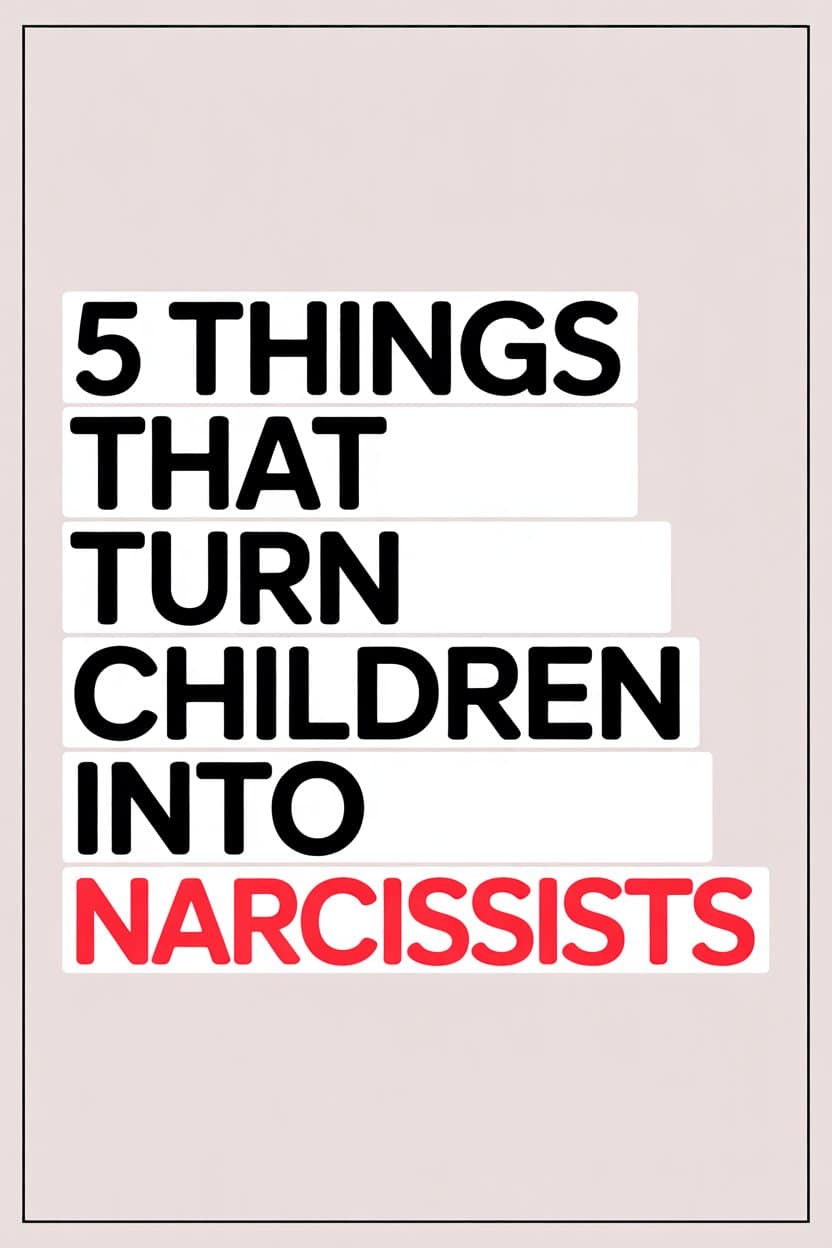Ever wondered if you’re raising the next great humanitarian or the future star of a reality TV show titled “Look at Me: The Sequel”?
Parenting comes with all the usual suspects—sleep deprivation, snack negotiations, the silent scream at 2 a.m.—but few things strike fear like the idea of accidentally crafting a tiny narcissist.
No one hands you a manual, but there are red flags we can spot a mile off, and a few sneaky habits that shove kids right down the path to selfie-obsession and “It’s all about me” syndrome. Here’s where it all goes pear-shaped.
1. Praise Overload: Every Day is Trophy Day
Handing out gold stars like Oprah giving away cars—“You get a star! And you! And…here, have three!”—might feel encouraging.
Small wins, big wins, or simply the act of breathing in and out—some parents throw a full parade for it.
Here’s the kicker: Not every moment needs to be a standing ovation. When every scribble is “the next Picasso” and every goal is “World Cup level!”, kids start to believe their own hype.
Genuine self-esteem comes from achievement and effort, not just applause.
It’s tempting—oh, so tempting—to blanket kids in affirmation. But children figure things out fast. If every day is trophy day, actual accomplishment loses its shine. Mix in some honest, constructive feedback with your cheerleading.
Kids who hear, “I love how hard you worked” instead of, “You’re the best at everything!” learn to value growth over glory. It’s a subtle shift, but it does wonders for keeping egos in check.
2. Helicopter Parenting: When ‘Supportive’ Becomes ‘Smothering’
Picture the parent who fills out the university application, negotiates the friend drama, and brings forgotten lunches to school like it’s an Olympic event.
Hovering parents mean well, but by constantly rescuing their kids from disappointment, effort, or—heaven forbid—failure, they’re not raising confident humans. They’re raising people who think the world should revolve around their every need.
Every time a parent swoops in to save the day, children miss out on learning to handle frustration, disappointment, or even the smallest inconvenience.
Kids who believe someone else will always fix things start to expect special treatment from everyone. Suddenly, they’re the main character in every room.
Let them tie their own shoes. Watch them argue with siblings without jumping in at the first whiff of discord. Grit comes from struggle, not from being chauffeured through life in a bubble-car of parental protection.
3. The Myth of the Golden Child: Playing Favorites
Here’s that awkward family dinner: One sibling gets all eyes, all praise, all “He’s the clever one,” while the rest are expected to clap politely from the sidelines.
Labeling a child “the smart one,” “the pretty one,” or any other superlative seems harmless, but it sets up shop in their psyche.
The favored kid learns to see themselves as the center of the universe, while siblings may start rehearsing for future therapy appointments. Not exactly the family legacy anyone wants to leave.
Everyone craves feeling special, but turning a child into the family mascot is a shortcut to grandiosity and entitlement. Instead, let each kid shine in their own weird, wonderful way.
Equal attention doesn’t mean identical treatment—it means recognizing individual interests and successes, not crowning a chosen one.
4. Emotional Neglect in a House Full of Stuff
A mountain of toys, screen time on tap, clothes that could clothe a small nation—yet genuine, meaningful attention is in short supply. Sometimes material abundance becomes a stand-in for real connection.
Emotional neglect doesn’t always look like an empty fridge and cold shoulders. Sometimes it’s just busy, distracted parents who dole out gadgets instead of listening, or who avoid tough conversations out of their own discomfort.
Kids are clever. When they don’t get consistent love and guidance, they fill the gap with whatever gets them noticed—loud behavior, endless demands, or, yes, narcissism.
They learn to perform for attention, rather than feeling secure enough to just exist as themselves.
Forget the latest “must-have” toy. A few minutes of genuine eye contact does more for a child’s sense of self than any shiny object ever could.
5. No Boundaries, No Consequences
Ever met a kid who’s never heard the word “no”? It’s a sight to behold—a mini dictator in light-up sneakers, running roughshod over adults who look permanently exhausted.
When parents avoid setting boundaries (or enforcing them), they raise children who see rules as “suggestions.”
Boundaries aren’t about control—they’re about respect. Learning that actions have consequences (even if it’s just missing out on dessert) is how kids develop empathy and self-regulation.
When limits are missing, children get the idea that the rules don’t apply to them. Why share? Why wait their turn? Why listen to anyone else?
Children might throw a fit when limits are set, but deep down, boundaries are reassuring. They teach kids the world doesn’t orbit around them, and—plot twist—other people’s feelings matter too.
Raising Humans, Not Little Emperors
Every parent has had a moment where they catch their child staring lovingly at their own reflection or negotiating bedtime like a pint-sized attorney. It happens. The real trick is what happens next.
A little self-love never hurt anyone, but unchecked, it snowballs into self-obsession. The secret sauce? Authenticity, limits, and honest connection.
Praise real effort, let kids stumble (and even fail), notice each child as an individual, give them your time—not just your wallet—and never be afraid to say “no” with a straight face.
Parenting is messy, and nobody gets it right every time (especially not the person writing this).
But dodging these five traps means you’re already doing better than you think—raising humans, not headline-makers for all the wrong reasons.
And if all else fails, just imagine the therapy savings.


